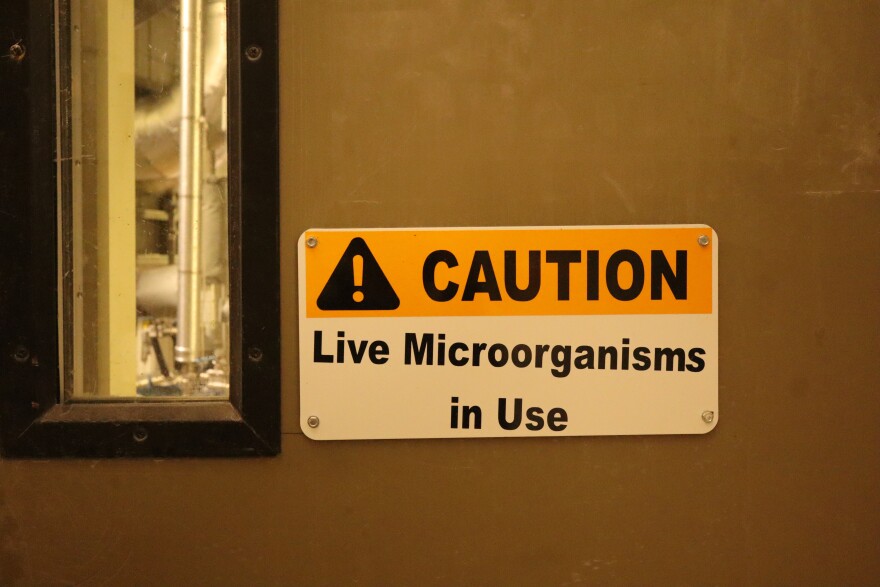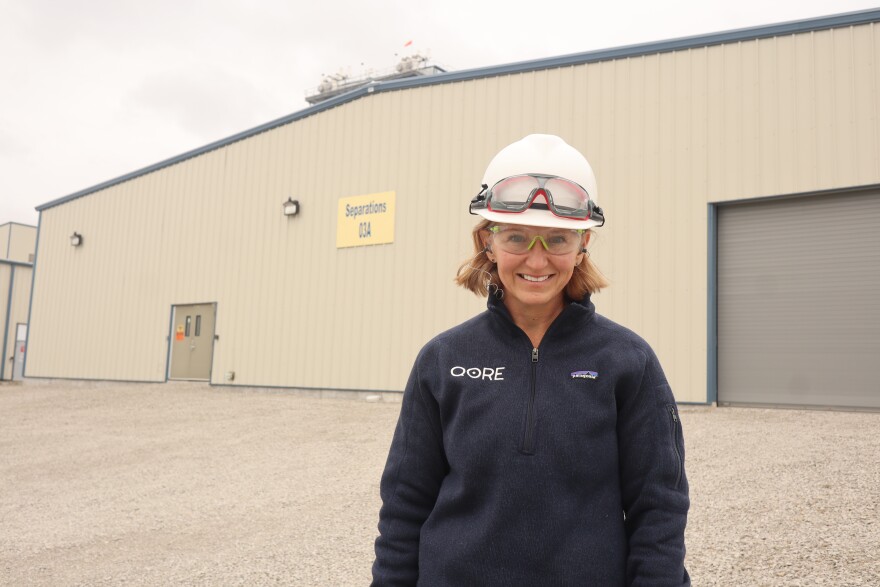In the town of Eddyville, home to just under 1,000 people, a large corn processing plant dominates the skyline. Iowa corn, transported there from nearly all 99 counties, is turned into products like ethanol, high fructose corn syrup and corn gluten — and now, some of its refined product is piped just across the road to a one-of-a-kind facility that is helping turn Iowa corn into clothes.
Qore — a joint venture between Minnesota-based Cargill and Germany’s HELM AG — is the first of its kind, and one of only a handful of similar plants in the world. The $300 million facility officially opened over the summer to produce a bio-based version of a chemical called 1,4-Butanediol (BDO), trademarked as QIRA. The chemical, once made almost entirely from fossil fuels, is the backbone of countless everyday products, from stretch jeans to sneakers, car parts and cosmetics.
“Until I started this job, I had no idea, like, every single pair of shoes that you can buy [is made with] fossil fuels," said Andrea Vanderhoff, Qore’s technology and sustainability manager. “Anything with any stretch."
Inside the new Eddyville plant, a sugar solution called dextrose, derived from dent corn sourced from Iowa farms, flows through a pipeline from Cargill’s adjacent biorefinery and feeds a carefully engineered bacterial fermentation process. Through a series of steps completed in a network of buildings — fermentation, filtration, evaporation and distillation — those sugars are transformed into a clear, concentrated liquid.

Manufacturers can substitute QIRA for traditional BDO without changing their production lines. That's an advantage for companies under pressure to lower their carbon footprints, like the LYCRA Company, one of Qore’s first customers. The company is using QIRA to produce a new bio-derived fiber for its spandex. Last month, TIME Magazine named LYCRA fiber made from QIRA one of its Best Inventions of 2025.
“[QIRA] makes up about 70% of their fiber, which means that they're able to use the claim that their fiber is now 70% bio-based,” Vanderhoff said. “They've been able to drop their product carbon footprint by 44%, which is huge."
Other potential uses stretch far beyond fashion and footwear: automotive plastics, packaging films and even ingredients in lotions and hair gels can be made from QIRA. German chemical giant BASF has also signed a long-term supply agreement.

Finding a more sustainable solution
Qore’s location wasn’t chosen by chance. Eddyville offers both abundant access to corn and existing infrastructure, thanks to Cargill’s decades-long presence. The facility will produce 66,000 metric tons of QIRA annually, accounting for roughly 2% of global BDO demand.
Qore estimated that producing QIRA from corn cuts greenhouse gas emissions by up to 86% compared to coal-based BDO made in Asia, which dominates global supply. Much of that benefit comes from biogenic carbon — the carbon dioxide absorbed by corn during growth — and lower-energy fermentation compared with petrochemical refining.
Still, bio-based doesn’t mean carbon-free. Fermentation emits carbon dioxide, and the process depends on heat and electricity, often generated from natural gas. Qore reuses water and captures heat to improve efficiency. The company partners with the Iowa Corn Growers Association and local farmers who use regenerative practices like cover crops and reduced tillage in order to restore soil health and reduce nutrient runoff — a major pollution issue in Iowa waterways.

“There are a lot of things that we do because it's the best thing to do," Vanderhoff said. "We know it's the responsible and best thing to do market-wise; a lot of companies are moving in that direction, looking at their product's carbon footprint — or are being forced to because of regulations. That's not something that we see so heavily here in the U.S., but that's something that we do see more heavily in Europe and other countries."
From Eddyville, QIRA travels by rail to Houston, Texas, where it’s shipped overseas to countries in Asia for further processing. Vanderhoff said that’s because the U.S. lacks the chemical conversion infrastructure to turn BDO into compounds like PTMEG, the precursor to spandex.
“We hear a lot of, simply stated, 'It should be made in America,' or, 'Why aren't we doing that here?' We simply don't have the capability of those conversion units," Vanderhoff said. "There is not that capability anywhere in the U.S."
Even with that global loop, Qore believes its model can anchor a more sustainable future for materials manufacturing that starts with a Midwestern crop and stretches into wardrobes worldwide.
Editor's note: A previous version of this article listed the cost of the Qore facility as $360 million. It is $300 million.






